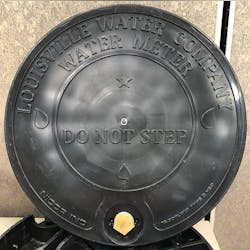Leveraging AMI in Louisville
Louisville Water Company supplies high-quality drinking water to nearly one million customers in Louisville, Ky., and the surrounding communities. Recently, the utility began work on a $62 million AMI project, in conjunction with Itron and Cisco. It is the largest project that is not engineering-related in the 159-year history of Louisville Water. Judy Sherer, project manager with Louisville Water discussed the program during Itron Utility Week in Marco Island, Fla. earlier this year.
Q. Please describe your utility automation project.
A. We have about 320,000 endpoints in our system and we plan to replace approximately 280,000 meters with new Neptune meters, Itron and Cisco’s OpenWay® Riva network or both. About two thirds of the meters will be completely changed out because of age and other factors, and the rest will get a new endpoint and register.
We're using Itron's 500W endpoint and Cisco’s Connected Grid Routers (CGR,) for the project [as well as a software portal]. In addition, we’re looking into upgrading our Itron MV-RS AMR system — our meter reading system that we've used for the past 20 years — to Itron's new FCS. It’s a big deal!
Q. What were some of the drivers for adopting AMI?
A. If you look at Louisville Water’s Strategic Business Plan, our vision is to lead the industry with superior quality service, innovation, and value. We feel AMI provides those things [both today and in the future].
We are obviously very customer-focused and we want to provide the best information to the customer. We also want to provide [our customers] value and with AMI technology we can find savings throughout our business processes.
For an example, right now, when a customer moves out of a property, we roll a truck to their house, we read the meter, and then we bill them for [the usage], and it may take a number of days to [retrieve the read]. With AMI, all of that is instantaneous, without that truck roll, which [reduces operational cost, increases efficiency and safety, streamlines billing and is overall better for the environment.]
Q. What are some of the other benefits, besides safety, that you’ve realized with AMI and access to interval data?
A. Right now, we bill our customers every other month. Because the service area is so large and we only have so many meter readers, it takes us that long to actually visit each property and visually read those meters. [With AMI, we'll have instantaneous and automated access to consumption data, which will allow us to move to monthly billing with no estimations.]
That's going to be a huge [operational] savings as far as rolling people and equipment, but there are benefits to the customer as well. Once they start receiving monthly bills, for example, it will become that much [easier for customers to understand their consumption and budget for water usage.]
Another benefit to think about is leak detection because right now, by only reading every other month, it could be about two and a half months before a customer realizes they have a leak, and those can be very costly and wasteful.
Q. How do you plan to leverage the AMI network going forward?
Well, monthly billing, early leak detection and notification, and increasing operational efficiencies are big ways we can leverage this technology. AMI greatly reduces manual processes. We will also utilize the system’s remote reading capabilities to improve customer service. For instance, if someone calls us and says, "I think there's something wrong with my meter," we can talk them through [the diagnostics] on the phone and potentially solve the issue instead of having to send a crew truck out and have someone investigate.
Itron and Cisco offer reliable connectivity, robust security, and proven applications for utilities and cities implementing smart solutions. Calculate out how much money you could be saving with AMI.
